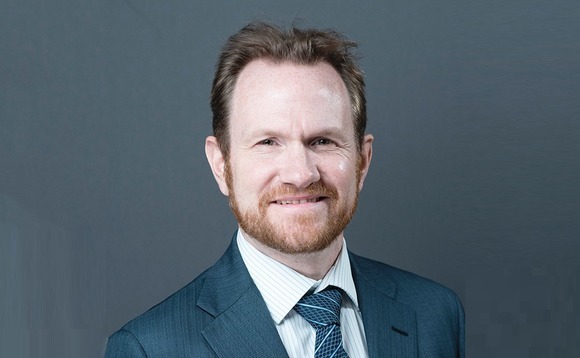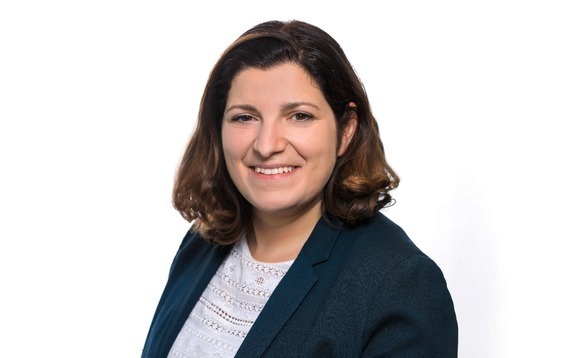
Sullivan Street to strike 'at least' two special sits deals and one exit this year with new ex-ICG hire

Sullivan Street, a UK-based complex situations investor, is looking to strike тat leastт two deals and one exit thanks to its boost in capacity following the hire of Zeina Bain, managing and founding partner Layton Tamberlin told Unquote.
"Zeina's hire gives us the flexibility to run more processes at the same time while keeping origination and portfolio management under control," said Tamberlin, adding that he has "implicit trust" of her stemming from the 25 years that they have known each other, with the conviction that she can pick up situations from the team fairly seamlessly.
Bain joins the lower mid-market investor from Intermediate Capital Group (ICG) where she led their structured partnership investments across the UK, Benelux, and the Nordics. Prior to this, she was a managing director in Carlyle's European buyout team.
The boost in bandwidth means that Sullivan Street is now "definitely thinking" about raising its first fund, although Tamberlin stressed that "it is not in a particular rush" given that its deal-by-deal model continues to work well.
"We can't really raise funds unless we can look people in the eye and commit to doing seven or eight deals over the next four years," he said. "But thanks to Zeina's hire, this now [increases] our capacity to execute two to three deals a year."
Fundraising would help add stability in the investor group, and the ability to move more quickly than the current set-up sometimes helps, he said. For now, it is working on a deal-by-deal basis with the backing of investors such as UHNWIs, family offices, and institutions, he said.
"Our team has been meaning to sit down since the start of 2023 to talk about [raising our first fund], but we have been so busy on new opportunities that we have not had the time to do so," he said. "The priority is striking at least two deals this year and making sure the team gels together, with one exit also a priority for this year, but that's more out of our hands as it depends on the market later this year."

Carve-out complexity
The buyout firm, founded in 2010, is focused on complex UK situations such as carve-outs, deploying GBP 20m-GBP 50m in equity for each deal with a sweet spot of GBP 20m-GBP 30m, he said.
The sponsor is sector-agnostic and can consider opportunities ranging from asset-heavy companies to people-based businesses, he said, noting that it is now seeing a lot of situations in facilities management, industrial manufacturing and packaging.
Sullivan is currently working on a complicated tripartite carve-out situation, which can be "unpalatable" to a lot of its peers and which can require extensive in-house work, including the separation of the ledgers and balance sheets, requiring it to take on decisions that cannot all be dealt with in legal warranties.
Carve-out opportunities are surfacing in some cases as parent companies are facing issues, with subsidiary divestments now a prospect even though there was previously no such intention, he said.
"Working on carve-out situations requires some fairly strong conviction views and a willingness to go into the data and understand the business at a very detailed and granular operational level in order to be confident in our views and what it will look like commercially," he said.
"Our peers may hire a good strategic consultant or a good Big Four accountancy firm to advise on what the answer is. These are complicated risks I personally wouldn't take based on a third-party assuring me all is in order, so it doesn't surprise me that many our peers conclude that some targets are not a risk worth taking," he added.
Special situations boom
Sullivan Street's push in the market comes as it sees a favourable environment for special situations market following years of stress in companies built up by COVID-19 disruption and inflation, he said.
"This is a change from the very calm environment for 10 years, where most opportunities came neatly packaged with a great management team and an IM. Those situations were difficult for us to play in," he said.
"Management teams have to deal with a lot these days - they can't just be focused on commercial, but have to manage small fires, from financial health to employee retention, to dealing with difficult customers angry at price increases, to fighting for sales and market share and streamlining their costs," he said.
Some companies have, for example, resized in line with COVID tailwinds, while others may have working capital problems as a result of the environment, he said. Others have been unable to flex their strategy over the last couple of years and have suddenly found themselves behind their competitors, he said, noting that it has seen one facilities management company that had not implemented its IT architecture quickly enough and resultingly saw its margins suffer.
One large issue it that the firm is having to deal with in its existing portfolio is inflation.
"I'm struggling to remember a single board meeting in the last 18 months where we haven't spent at least 25% of the time talking about inflation and how we're managing it and what we do about the cost base. And this is despite us having relatively stable and resilient businesses," he said.
Sullivan has noticed a theme in these situations, whereby companies have got too used to long periods of low inflation but are now seeing their costs going up. In spite of this, many CEOs and commercial officers are resistant to rewriting an existing contract and transferring that cost to customers.
"The reality is that this has to be done," he said. "You're not going to find 10% productivity gains a year across the whole cost base."
Its latest investments include UK inland surf park operator The Wave Group last May, as well as Octavius Infrastructure, a transport infrastructure engineering and services contractor that it backed in 2021.
[Editor's note: The article has been amended post-publication to clarify that Sullivan Street is a complex situations investor.]
Latest News
Stonehage Fleming raises USD 130m for largest fund to date, eyes 2024 programme
Sponsor acquired the public software group in July 2017 via the same-year vintage Partners Group Global Value 2017
Stonehage Fleming raises USD 130m for largest fund to date, eyes 2024 programme
Czech Republic-headquartered family office is targeting DACH and CEE region deals
Stonehage Fleming raises USD 130m for largest fund to date, eyes 2024 programme
Ex-Rocket Internet leader Bettina Curtze joins Swiss VC firm as partner and CFO
Stonehage Fleming raises USD 130m for largest fund to date, eyes 2024 programme
Estonia-registered VC could bolster LP base with fresh capital from funds-of-funds or pension funds








